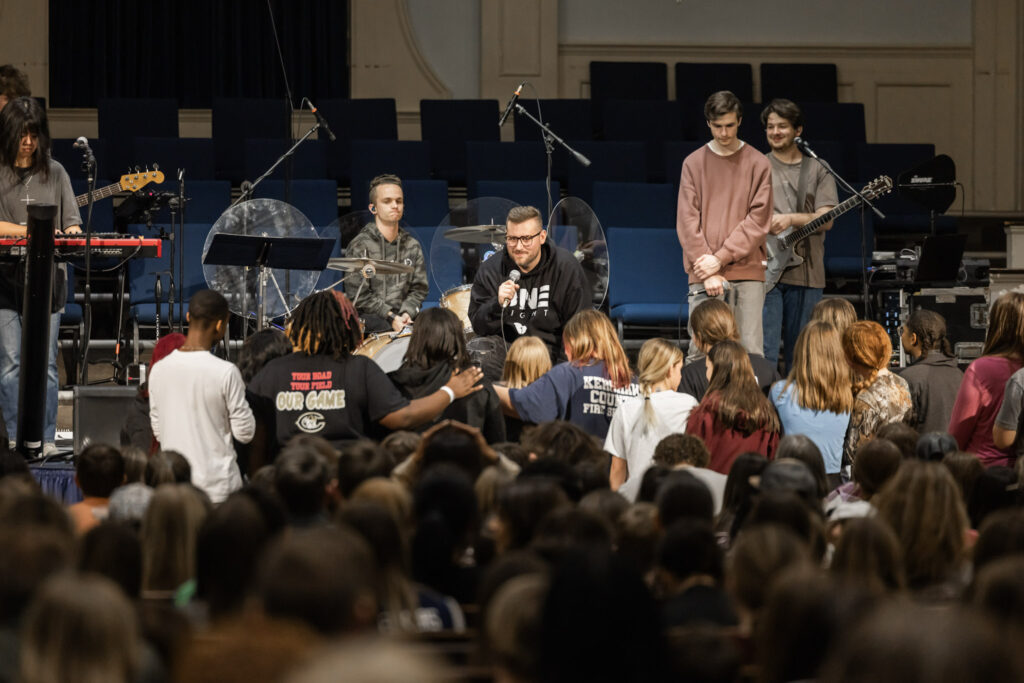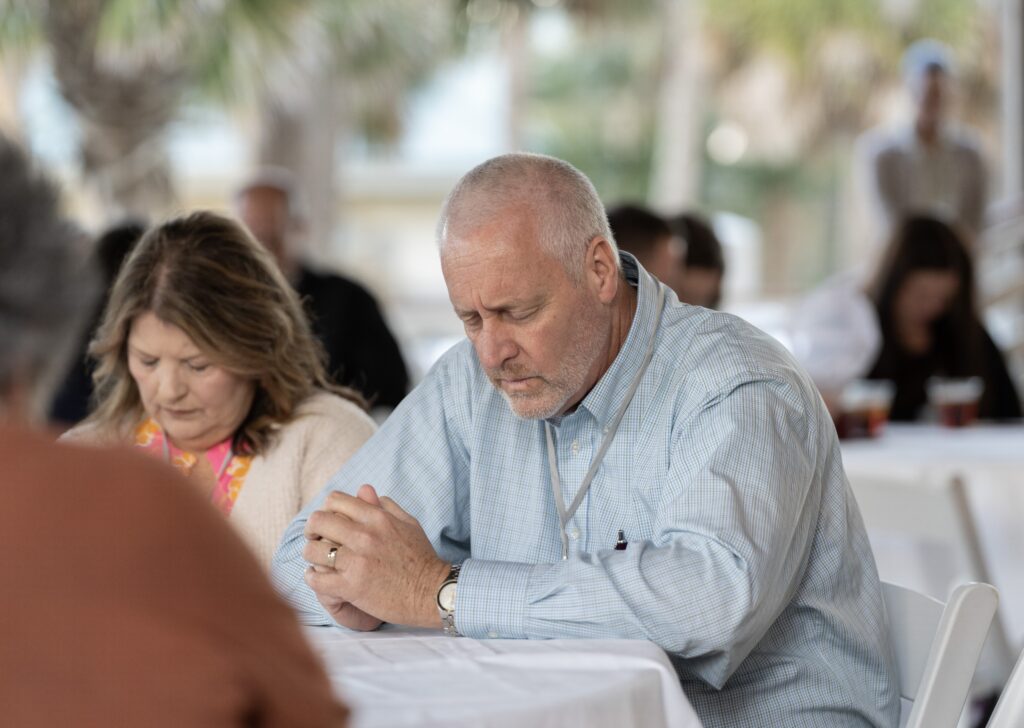South Carolina Baptist DR Provides Board Report: Praises Volunteers and Those Out of State
Speaking to the South Carolina Baptist Convention Executive Board, state Disaster Relief Director Randy Creamer had but two words to sum up his report that opened the two-day meeting’s final session: Thank you.
Creamer’s words of appreciation and lessons learned focused on the response and rebuild efforts following the 1,000-year flooding in October 2015, as a cold front stalled off the South Carolina coast and then tapped into moisture from Hurricane Joaquin. The developing surface low brought bands of heavy, continuous rain that resulted in catastrophic state flooding, deaths and evacuations, and destroyed roads, bridges, vehicles, and homes. The estimated state damage was $12 billion.
“First, let me say thank you,” Creamer said, pointing to convention staff, volunteers and South Carolina Baptists all across the state. “Everyone was engaged. To this day, I can visit the smallest of communities in South Carolina and hear, ‘The guys from the South Carolina Baptist Convention were such a help, just being here, listening to our stories, saying they cared, saying we weren’t forgotten, asking how they could help, and prayingwith us.’”
“This (Executive) Board, you brothers and sisters, served others through our hands and feet, sore muscles and aching backs, and our voices. Thank you, and to God be the glory,” Creamer said.
Creamer praised his predecessor, Cliff Satterwhite, who for 25 years “led South Carolina Baptist Disaster Relief to become a leading convention among the entire Southern Baptist Disaster Relief family.”
He closed by reviewing some lessons learned from the flooding and the rebuilding efforts that are ongoing:
- “The initial response like mud-out, cleanup, showers and laundry, feeding, child care, and chaplaincy is always easier than engaging in long-term recover and rebuild efforts.”
- “It’s never over when you think it’s over. We lost count of calls for assistance received after our initial response concluded and partnering states had returned home. And, it’s not over yet.”
- “The initial plans and goals to assist 1,000 homeowners with rebuild efforts is much more God-sized than man-sized. Touching 1,000 homes gives way to completing or making livable the homes so that residents are able to return.”
- “Superficial band-aids that address the cosmetic appearance of homes, like replacing sheetrock, painting, and installing new floors are superseded by the fact that the roof won’t shed water.” (The rebuild effort has focused largely on roof repairs as a priority).
- “The success of rebuild efforts rises and falls on the level of local engagement from local pastors, congregations, directors of missions, and associations. The greatest impacts have been in those areas where our associations were very actively engaged, recruiting their church and partnerships to provide housing for volunteers, and promoting the opportunity to serve. Some of our directors of missions have been out there personally working in Long Term Recovery Groups.”
- “As the largest faith-based network in our state, South Carolina Baptists have realized the responsibility that comes with living out our faith in a tangible and effective manner in a way that Jesus would.” Creamer thanked other groups like Samaritan’s Purse, United Methodist Committee on Relief (UMCOR), Mennonite Disaster Services, God’s Pit Crew, Lutherans and Presbyterians, the Cooperative Baptist Fellowship, and the Wesleyan Methodists as partners in ministry service. He also thanked state Gov. Nikki Haley and other local, state, and national partners looking to remain engaged in South Carolina.
Creamer especially praised North Carolina and Georgia Baptists for stepping up and taking responsibility for rebuild efforts in Pee Dee communities of the state. He reported North Carolina Baptist Men have been working in the Johnsonville and Hemingway areas since December, coordinating volunteers from many different sources and places, including a group of students from Wisconsin. More than 30 homes have been redone, and another 70 are in process. First Baptist Church Johnsonville has made its gym available to house volunteers, and the Florence Baptist Association has been very involved locally.
Similarly, Georgia Baptists are beginning work in Georgetown with the Southeast Baptist Association as a key local partner.
“This is not a sprint; it’s a marathon,” Creamer said. “We’ve learned that if we are faithful and continue to walk the path of faith, God is faithful to supply every need. He may not provide my wants, but He will provide my needs. We’re learning fresh lessons of trust and faithfulness surrounding volunteers, job requests, and financial needs.”




